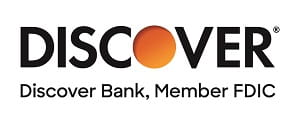-
Compare Lenders
featured articles
featured articles
-
Scholarships
featured articles
featured articles
featured articles
featured articles
-
Plan for College
featured articles
featured articles
featured articles
featured articles
featured articles
featured articles
-
Student Loans
featured articles
featured articles
featured articles
- Filing the FAFSA 2025-2026: A Simple Guide for Students
- FAFSA FAQ - Your FAFSA Questions Answered
- The complete guide to federal undergraduate student loans
- What are Federal Parent PLUS Loans and How to Apply
- Financial Aid for Graduate School
- Compare Subsidized and Unsubsidized Student Loans
- View All Articles >
featured articles
featured articles
-
Credit Cards
featured articles
featured articles
featured articles
-
Money Management
featured articles
featured articles
featured articles
featured articles
featured articles
featured articles
featured articles
- Student LIFE Blog
Edvisors (“Edvisors Network, Inc.”) provides independent advertising-supported platforms for consumers to search compare and apply for private student loans. Loan offers from participating lenders that appear on our websites are not affiliated with any college and/or universities, and there are no colleges and/or universities which endorse Edvisors’ products or services. Lender search results do not constitute an official college preferred lender list. Edvisors receives compensation from lenders that appear on this site. This compensation may impact the placement of where lenders appear on this site, for example, the order in which the lenders appear when included in a list. Not all lenders participate in our sites and lenders that do participate may not offer loans to every school.
Edvisors is not a lender and makes no representations or warranties about your eligibility for a particular loan or financial aid. Lenders are solely responsible for any and all credit decisions, loan approval and rates, terms and other costs of the loan offered and may vary based upon the lender you select. Please check with your school or lender directly for information related to your personal eligibility.
Edvisors has endeavored to provide accurate information. However, the results provided by lenders are for illustrative purposes only and accuracy is not guaranteed, as such, Edvisors assumes no responsibility for errors or omission in the information provided.
Thank you for your interest in Edvisors' 2020-2021 Guide to Filing the FAFSA.
Please complete the form below to access your free copy.
Thank you! Click here to download your free FAFSA Guide.
Enter your email below to receive your Student Loan Handbook from Edvisors.
Please check your email for the Student Loan Handbook.
Elaine Rubin is the Director of Corporate Communications at Edvisors. She has worked in higher education finance for more than 10 years, and provides information and advice from both personal and professional experiences. Elaine holds a degree in Political Science with a concentration in Public Policy and Administration from Northeastern University.
Find Elaine Rubin on LinkedIn.
If you would like to schedule an interview with Elaine, please reach out to us at [email protected]Recent articles by this Author
The Biden administration has filed an emergency appeal with the U.S. Supreme Court in hopes of continuing their implementation of the SAVE Plan for millions of borrowers.
The U.S. Department of Education has announced their plans for the 2025-2026 FAFSA release. As they, and the rest of the financial aid community, are working through the 2024-2025 application, it's about time to prepare for the next FAFSA cycle.
In a recent announcement, the U.S. Department of Education has indicated that schools will not be given the ability to make necessary batch corrections for outstanding FAFSA applications. The most recent announcement could impact thousands of students nationwide, and has left school rushing against the clock to process their FAFSA applications that require corrections.
Navigating the complex landscape of potential student loan forgiveness can be confusing for borrowers looking for relief. As new updates emerge, understanding the proposals, potential qualifies, and the pathways to debt relief is crucial.
Dual enrollment programs offer distinct advantages for high school students. However, it is essential to take the necessary steps for enrollment and to ensure you fully benefit from the program.
The recent legal block on the SAVE Plan has significant implications for loan management. This latest development in result of several legal challenges against the plan will have both immediate and potentially long-term effects for borrowers. Staying informed will be crucial for effectively navigating one's financial future.
Copyright © 2025 by Edvisors.com. All rights reserved.










